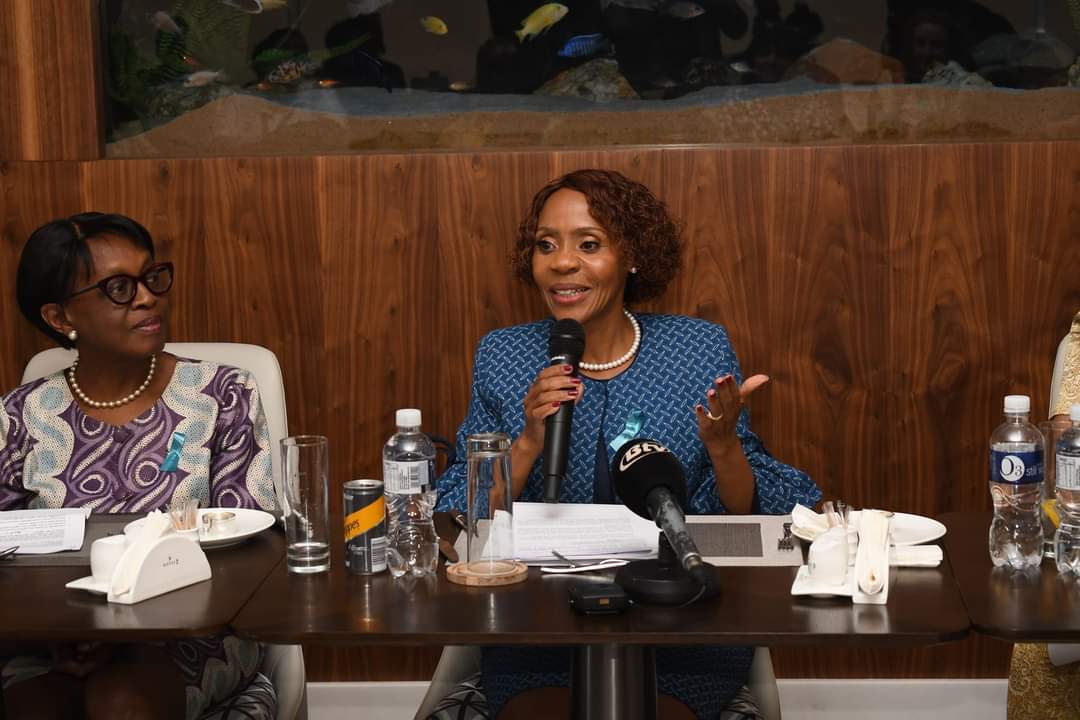Stakeholders have been encouraged to take part in the fight against cervical cancer. Addressing the media in Gaborone yesterday, the First Lady Mrs Neo Jane Masisi said stakeholders should share technologies that could help the health outcomes around the world.
The First Lady reiterated that the private sector should conduct researches and support governments as they step up the efforts to fight cervical cancer. She also said that training institutions and the academia should capacitate the medical personnel across the spectrum of health care, adding that they should share data and have the information on the public domain.
Mrs Masisi said cervical cancer is, unlike other cancers, preventable. She noted that this can only be possible by ensuring that young girls are vaccinated with HPV vaccines and women receive quality screening and treatment of precancerous lesions.
Routine cervical cancer screening and early treatment can prevent up to 80% of cervical cancers if abnormalities of the cervix are identified at stages when they can be easily treated. HPV vaccination is vital but does not replace the necessity of cervical cancer screening and early treatment in women. In 2020, the World Health Organization (WHO) introduced an elimination strategy with goals for vaccination, screening, and treatment.
Mrs Masisi thanked the WHO as a key partner that provides technical advice to countries. She also appreciated the Survivors from African countries and encouraged them to continue with self-advocacy as they are providing lessons about cancers in the whole spectrum. She also encouraged the Government to continue funding and commit resources to elimination of cancers to save women and the girl child.

